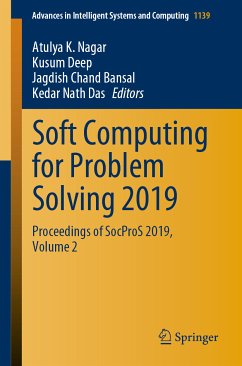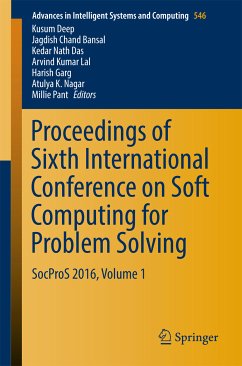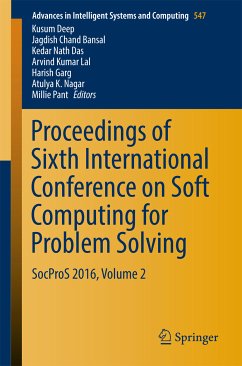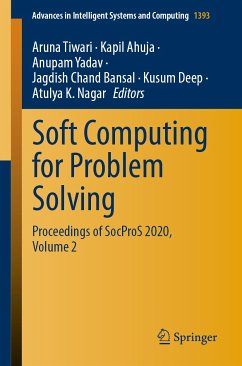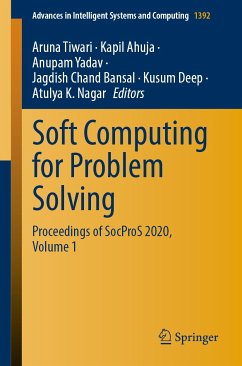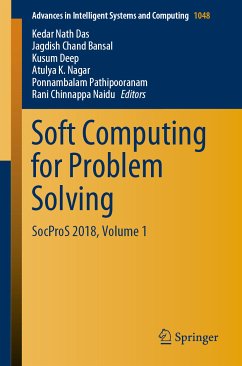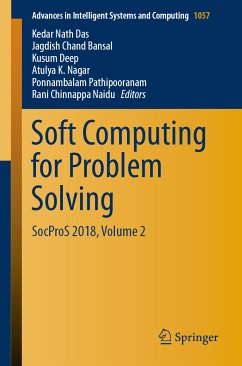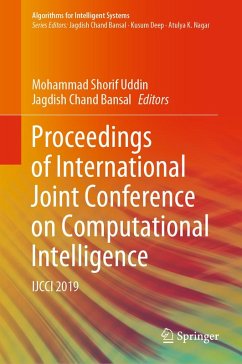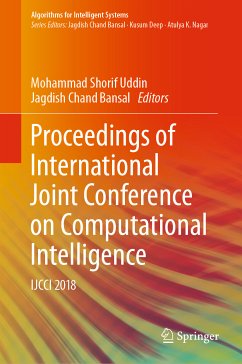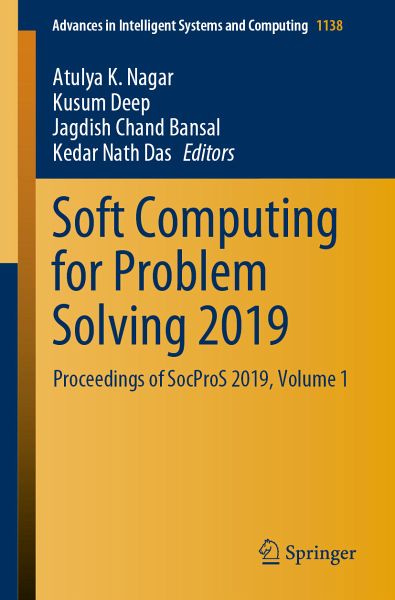
Soft Computing for Problem Solving 2019 (eBook, PDF)
Proceedings of SocProS 2019, Volume 1
Redaktion: Nagar, Atulya K.; Das, Kedar Nath; Bansal, Jagdish Chand; Deep, Kusum
Versandkostenfrei!
Sofort per Download lieferbar
160,95 €
inkl. MwSt.
Weitere Ausgaben:

PAYBACK Punkte
80 °P sammeln!
This book features the outcomes of the 9th International Conference on Soft Computing for Problem Solving, SocProS 2019, which brought together researchers, engineers and practitioners to discuss thought-provoking developments and challenges in order to identify potential future directions. The book presents the latest advances and innovations in the interdisciplinary areas of soft computing, including original research papers in areas such as algorithms (artificial immune systems, artificial neural networks, genetic algorithms, genetic programming, and particle swarm optimization) and applica...
This book features the outcomes of the 9th International Conference on Soft Computing for Problem Solving, SocProS 2019, which brought together researchers, engineers and practitioners to discuss thought-provoking developments and challenges in order to identify potential future directions. The book presents the latest advances and innovations in the interdisciplinary areas of soft computing, including original research papers in areas such as algorithms (artificial immune systems, artificial neural networks, genetic algorithms, genetic programming, and particle swarm optimization) and applications (control systems, data mining and clustering, finance, weather forecasting, game theory, business and forecasting applications). It is a valuable resource for both young and experienced researchers dealing with complex and intricate real-world problems that cannot easily be solved using traditional methods.
Dieser Download kann aus rechtlichen Gründen nur mit Rechnungsadresse in A, B, BG, CY, CZ, D, DK, EW, E, FIN, F, GR, HR, H, IRL, I, LT, L, LR, M, NL, PL, P, R, S, SLO, SK ausgeliefert werden.



